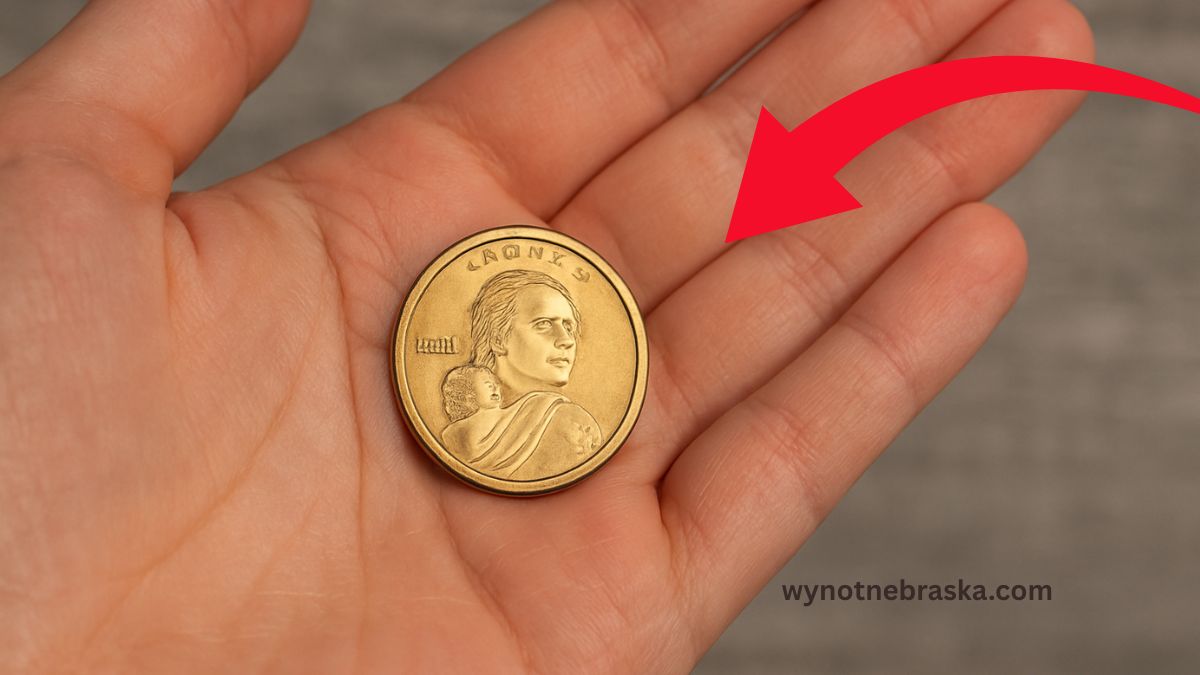Imagine carrying a $14,000 coin without even realizing it. Incredibly, everyday change could contain rare $1 coins that are highly valuable to collectors.
From minting errors to limited editions, certain coins have skyrocketed in value — and they might be sitting in your piggy bank or pocket.
Let’s explore which rare $1 coins to look for, how to spot them, and real-world examples of coins that made people rich.
Rare $1 Coins Worth Thousands
| Rare Coin | Key Features | Estimated Value |
|---|---|---|
| 2000-P Sacagawea “Cheerios” Dollar | Enhanced eagle tail feathers | Up to $14,000 |
| 1979-P Susan B. Anthony Dollar (Wide Rim) | Close date to rim | Up to $500+ |
| 2000 Australian $1 Mule Error | Double rim on head side | $4,000–$6,000 |
Why Some $1 Coins Are Worth a Fortune
1. The Cheerios Sacagawea Dollar
In 2000, General Mills placed specially minted Sacagawea dollars inside Cheerios cereal boxes.
Only about 5,500 coins featured an enhanced eagle tail feather design, making them extremely rare.
- Current Value: Up to $14,000 in MS68 condition (Mint State grade)
- How to Spot It:
Use a magnifying glass to check for detailed feather lines on the eagle’s tail.
2. 1979-P Susan B. Anthony Wide Rim Dollar
Another treasure is the 1979-P Wide Rim Anthony Dollar:
- Key Feature:
The rim appears much closer to the date than on typical 1979 coins. - Value:
In MS65+ condition, it can fetch over $500. - Tip:
Compare it side-by-side with a standard coin or use online photo guides from NGC or PCGS.
3. Australia’s $1 Mule Coin
In 2000, the Royal Australian Mint accidentally struck a $1 coin using the obverse die from a 10-cent coin.
- Unique Trait:
A double rim on the queen’s head side. - Value:
Circulated versions still sell for $4,000 to $6,000.
How to Spot a Rare $1 Coin
Follow these simple steps to see if you have a hidden fortune:
Step 1: Check the Date and Mint Mark
Focus on:
- 2000-P Sacagawea Dollar
- 1979-P Susan B. Anthony Dollar
- 2000 Australian $1 Coin
The “P” indicates the Philadelphia Mint in the U.S.
Step 2: Inspect the Design Closely
Use a magnifying glass or phone camera zoom:
- Look for enhanced eagle feathers.
- Spot rim closeness on the Anthony dollar.
- Find a double rim on Australian coins.
Step 3: Evaluate the Coin’s Condition
Higher-grade coins are worth significantly more:
- Uncirculated or Mint State (MS65+) coins demand premium prices.
- Use professional grading services like NGC or PCGS.
Step 4: Watch for Minting Errors
Coins with:
- Misaligned dies
- Off-center strikes
- Double strikes
can be extremely valuable.
Step 5: Get It Authenticated
Professional certification boosts the value and buyer trust when selling.
Real-Life Auction Results
| Coin | Condition | Recent Sale Price |
|---|---|---|
| 2000-P Sacagawea “Cheerios” Dollar | MS68 | $14,100 (Heritage Auctions) |
| 1979-P Wide Rim Anthony | MS65 | $500+ |
| 2000 Australian Mule | Circulated | $4,000–$6,000 |
The thrill of finding a rare $1 coin worth up to $14,000 is real — and many coins are still hiding in circulation.
By carefully inspecting dates, rims, designs, and conditions, you could unlock a life-changing discovery right from your pocket.
Start checking your spare change today — your small fortune might be closer than you think!
FAQs
How can I tell if I have a Cheerios Sacagawea Dollar?
Look for enhanced tail feathers on the eagle’s design, using a magnifier to check for fine feather details.
Are all 1979 Susan B. Anthony dollars valuable?
No, only the 1979-P Wide Rim variety carries significant value compared to standard minted versions.
What should I do if I think I have a rare $1 coin?
Take the coin to a certified dealer or send it to NGC or PCGS for authentication and grading.

